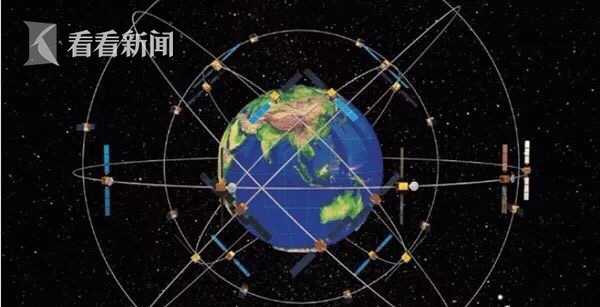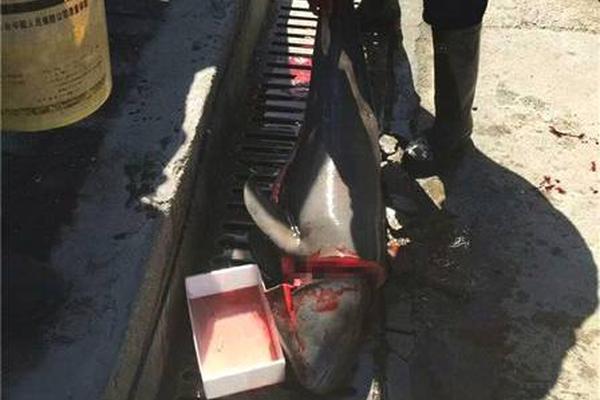
1. The operating system has five functions: processor management: mainly controls and manages the work of the CPU. Storage management: mainly allocate and manage memory. Device management: mainly manage basic input and output devices. File management: responsible for the organization, storage, operation and protection of computer files.
2. The functions of the computer operating system include: processor management, memory management, device management, file management, job management and other functional modules. Processor management. The most basic function of processor management is to handle interrupt events. The processor can only detect interrupt events and generate interrupts and cannot process them.
3. The main function of the computer operating system is process management, and its work is mainly process adjustment.Degree, in the case of a single user and a single task, the processor is only monopolized by one user's task, and the process management work is very simple.
4. I) Processor management The most basic function of processor management is to handle interrupt events. The processor can only detect interrupt events and generate interrupts, and cannot handle these interrupt events. After configuring the operating system, all types of events can be handled. Another function of processor management is processor scheduling.
5. The main functions of the operating system are process and processor management, job management, storage management, device management and file management, as follows: process and processor management. Because the execution of the program must rely on the processor, only one program flow can be processed and executed at any time. Homework management.
6. Five management functions of the operating system: job management: including tasks, interface management, human-computer interaction, graphical interface, voice control and virtual reality, etc. File management: also known as information management. Storage management: The essence is the management of storage "space", which mainly refers to the management of the main memory.
1. The functions of the computer operating system include: processor management, memory management, device management, file management, job management and other functional modules. Processor management. The most basic function of processor management is to handle interrupt events. The processor can only detect interrupt events and generate interrupts and cannot process them.
2. The characteristics of the batch processing operating system are: a. Users use computers offline.After the user submits the homework, he no longer deals with the computer until he gets the result. The task submission method can be directly submitted to the management operator of the computing center, or it can be submitted through the remote communication line.
3. The operating system has five functions: processor management: mainly control and manage the work of the CPU. Storage management: mainly allocate and manage memory. Device management: mainly manage basic input and output devices. File management: responsible for the organization, storage, operation and protection of computer files.
1. The five major functions of the operating system are processor management, memory management, device management, file management and job management.Processor management The most basic function of processor management is to process interrupt events. After configuring the operating system, various events can be processed.
2. Five management functions of the operating system: job management: including tasks, interface management, human-computer interaction, graphical interface, voice control and virtual reality, etc. File management: also known as information management. Storage management: The essence is the management of storage "space", which mainly refers to the management of the main memory.
3. The operating system has five functions: processor management: mainly control and manage the work of the CPU. Storage management: mainly carry out memory allocation and management device management: mainly manage basic input and output device file management: responsible for the organization, storage, operation and protection of computer files, etc.

[Answer]: The operating system is responsible for managing all the resources of the computer system and scheduling the use of these resources.
Function: roughly including 5 aspects of pipeFunctions: process and processor management, operation management, storage management, equipment management, file management.
The role of the operating system Process management, also known as processor management, is mainly tasked to reasonably allocate the time of the processor and effectively manage the operation of the processor. Memory management Because multiple programs share memory resources, the main task of memory management is to allocate, protect and expand memory.
The five major functions of the operating system are: processor management, memory management, device management, file management and job management. Processor management: The most basic function of processor management is to handle interrupt events. The processor can only detect interrupt events and generate interrupts and cannot process them.
Five management functions of the operating system: Job management: including tasks, interface management, human-computer interaction, graphical interface, voice control and virtual reality, etc. File management: also known as information management. Storage management: The essence is the management of storage "space", which mainly refers to the management of the main memory.
File management refers to the management of information resources by the operating system. In the operating system, part of the management information responsible for access is called the file system. A file is an ordered collection of logically complete sets of relevant information, and each collection has a file name. File management supports the storage, retrieval and modification of files, as well as the protection of files.
1. The reason why the computer can make it convenient for usersThe use lies in the scheduling and management of the entire computer system (software, hardware and various resources) of the operating system. The operating system is the core of the whole computer system. It provides an interface for users and various application software to use the computer.
2. The operating system refers to the system software in the computer system that is responsible for supporting the running environment of the application and the user's operating environment. It has the functions of directly supervising hardware, managing various computer resources and providing application-oriented services.
3. The main function of the computer operating system is process management, which is mainly process scheduling. In the case of a single user and a single task, the processor is only monopolized by one user's task. The work of process management is very simple.
4. Operating system definitionOperating System (OS) is a program collection that controls and manages computer software and hardware resources, and organizes multiple users to share multiple resources in the most reasonable and effective way. Any other software must be run with the support of the operating system.
5. The operating system has five functions: processor management: mainly controls and manages the work of the CPU. Storage management: mainly allocate and manage memory. Device management: mainly manage basic input and output devices. File management: responsible for the organization, storage, operation and protection of computer files.
6. The main functions of the operating system are: control and manage computer hardware resources: the operating system controls and manages computer hardware resources, such as memory, disk, processor, etc., in order to allocate and use these resources most effectively.
The main function of the computer operating system is process management, and its work is mainly process scheduling. In the case of a single user and a single task, the processor is only exclusive to one task of one user, and the work of process management is very simple.
The functions of the computer operating system include: processor management, memory management, device management, file management, job management and other functional modules. Processor management. The most basic function of processor management is to handle interrupt events. The processor can only detect interrupt events and generate interrupts and cannot process them.
The characteristics of the batch processing operating system are: a. Users use computers offline. After the user submits the homework, he no longer deals with the computer until he gets the result.The task submission method can be directly submitted to the management operator of the computing center, or it can be submitted through the remote communication line.
UEFA TV-APP, download it now, new users will receive a novice gift pack.
1. The operating system has five functions: processor management: mainly controls and manages the work of the CPU. Storage management: mainly allocate and manage memory. Device management: mainly manage basic input and output devices. File management: responsible for the organization, storage, operation and protection of computer files.
2. The functions of the computer operating system include: processor management, memory management, device management, file management, job management and other functional modules. Processor management. The most basic function of processor management is to handle interrupt events. The processor can only detect interrupt events and generate interrupts and cannot process them.
3. The main function of the computer operating system is process management, and its work is mainly process adjustment.Degree, in the case of a single user and a single task, the processor is only monopolized by one user's task, and the process management work is very simple.
4. I) Processor management The most basic function of processor management is to handle interrupt events. The processor can only detect interrupt events and generate interrupts, and cannot handle these interrupt events. After configuring the operating system, all types of events can be handled. Another function of processor management is processor scheduling.
5. The main functions of the operating system are process and processor management, job management, storage management, device management and file management, as follows: process and processor management. Because the execution of the program must rely on the processor, only one program flow can be processed and executed at any time. Homework management.
6. Five management functions of the operating system: job management: including tasks, interface management, human-computer interaction, graphical interface, voice control and virtual reality, etc. File management: also known as information management. Storage management: The essence is the management of storage "space", which mainly refers to the management of the main memory.
1. The functions of the computer operating system include: processor management, memory management, device management, file management, job management and other functional modules. Processor management. The most basic function of processor management is to handle interrupt events. The processor can only detect interrupt events and generate interrupts and cannot process them.
2. The characteristics of the batch processing operating system are: a. Users use computers offline.After the user submits the homework, he no longer deals with the computer until he gets the result. The task submission method can be directly submitted to the management operator of the computing center, or it can be submitted through the remote communication line.
3. The operating system has five functions: processor management: mainly control and manage the work of the CPU. Storage management: mainly allocate and manage memory. Device management: mainly manage basic input and output devices. File management: responsible for the organization, storage, operation and protection of computer files.
1. The five major functions of the operating system are processor management, memory management, device management, file management and job management.Processor management The most basic function of processor management is to process interrupt events. After configuring the operating system, various events can be processed.
2. Five management functions of the operating system: job management: including tasks, interface management, human-computer interaction, graphical interface, voice control and virtual reality, etc. File management: also known as information management. Storage management: The essence is the management of storage "space", which mainly refers to the management of the main memory.
3. The operating system has five functions: processor management: mainly control and manage the work of the CPU. Storage management: mainly carry out memory allocation and management device management: mainly manage basic input and output device file management: responsible for the organization, storage, operation and protection of computer files, etc.

[Answer]: The operating system is responsible for managing all the resources of the computer system and scheduling the use of these resources.
Function: roughly including 5 aspects of pipeFunctions: process and processor management, operation management, storage management, equipment management, file management.
The role of the operating system Process management, also known as processor management, is mainly tasked to reasonably allocate the time of the processor and effectively manage the operation of the processor. Memory management Because multiple programs share memory resources, the main task of memory management is to allocate, protect and expand memory.
The five major functions of the operating system are: processor management, memory management, device management, file management and job management. Processor management: The most basic function of processor management is to handle interrupt events. The processor can only detect interrupt events and generate interrupts and cannot process them.
Five management functions of the operating system: Job management: including tasks, interface management, human-computer interaction, graphical interface, voice control and virtual reality, etc. File management: also known as information management. Storage management: The essence is the management of storage "space", which mainly refers to the management of the main memory.
File management refers to the management of information resources by the operating system. In the operating system, part of the management information responsible for access is called the file system. A file is an ordered collection of logically complete sets of relevant information, and each collection has a file name. File management supports the storage, retrieval and modification of files, as well as the protection of files.
1. The reason why the computer can make it convenient for usersThe use lies in the scheduling and management of the entire computer system (software, hardware and various resources) of the operating system. The operating system is the core of the whole computer system. It provides an interface for users and various application software to use the computer.
2. The operating system refers to the system software in the computer system that is responsible for supporting the running environment of the application and the user's operating environment. It has the functions of directly supervising hardware, managing various computer resources and providing application-oriented services.
3. The main function of the computer operating system is process management, which is mainly process scheduling. In the case of a single user and a single task, the processor is only monopolized by one user's task. The work of process management is very simple.
4. Operating system definitionOperating System (OS) is a program collection that controls and manages computer software and hardware resources, and organizes multiple users to share multiple resources in the most reasonable and effective way. Any other software must be run with the support of the operating system.
5. The operating system has five functions: processor management: mainly controls and manages the work of the CPU. Storage management: mainly allocate and manage memory. Device management: mainly manage basic input and output devices. File management: responsible for the organization, storage, operation and protection of computer files.
6. The main functions of the operating system are: control and manage computer hardware resources: the operating system controls and manages computer hardware resources, such as memory, disk, processor, etc., in order to allocate and use these resources most effectively.
The main function of the computer operating system is process management, and its work is mainly process scheduling. In the case of a single user and a single task, the processor is only exclusive to one task of one user, and the work of process management is very simple.
The functions of the computer operating system include: processor management, memory management, device management, file management, job management and other functional modules. Processor management. The most basic function of processor management is to handle interrupt events. The processor can only detect interrupt events and generate interrupts and cannot process them.
The characteristics of the batch processing operating system are: a. Users use computers offline. After the user submits the homework, he no longer deals with the computer until he gets the result.The task submission method can be directly submitted to the management operator of the computing center, or it can be submitted through the remote communication line.
100 free bonus casino no deposit GCash
author: 2025-01-05 07:18bingo plus update today Philippines
author: 2025-01-05 05:55 European Cup live
European Cup live
299.65MB
Check App to watch Champions League live free
App to watch Champions League live free
526.31MB
Check PAGCOR online casino free 100
PAGCOR online casino free 100
312.83MB
Check 100 free bonus casino no deposit GCash
100 free bonus casino no deposit GCash
637.11MB
Check App to watch Champions League live free
App to watch Champions League live free
716.39MB
Check Hearthstone Arena class tier list 2024
Hearthstone Arena class tier list 2024
174.62MB
Check UEFA Champions League live streaming app
UEFA Champions League live streaming app
416.44MB
Check Champions League
Champions League
532.77MB
Check Casino Plus GCash login
Casino Plus GCash login
769.54MB
Check Hearthstone deck
Hearthstone deck
114.73MB
Check Arena plus APK
Arena plus APK
775.42MB
Check Casino Plus GCash login
Casino Plus GCash login
956.46MB
Check Casino Plus GCash login
Casino Plus GCash login
328.61MB
Check Bingo Plus
Bingo Plus
142.23MB
Check Hearthstone deck
Hearthstone deck
518.73MB
Check Casino Plus login register
Casino Plus login register
697.31MB
Check Casino Plus
Casino Plus
633.35MB
Check Hearthstone Arena class tier list 2024
Hearthstone Arena class tier list 2024
632.86MB
Check Hearthstone arena class win rates reddit
Hearthstone arena class win rates reddit
976.36MB
Check Hearthstone arena class win rates reddit
Hearthstone arena class win rates reddit
365.32MB
Check 100 free bonus casino no deposit GCash
100 free bonus casino no deposit GCash
639.36MB
Check UEFA Europa League
UEFA Europa League
665.13MB
Check PAGCOR online casino free 100
PAGCOR online casino free 100
796.86MB
Check Casino Plus free 100
Casino Plus free 100
446.34MB
Check UEFA European championship
UEFA European championship
211.13MB
Check Hearthstone arena class win rates reddit
Hearthstone arena class win rates reddit
278.58MB
Check TNT Sports
TNT Sports
546.59MB
Check UEFA Champions League live streaming app
UEFA Champions League live streaming app
517.59MB
Check Bingo Plus stock
Bingo Plus stock
284.77MB
Check Arena Plus login
Arena Plus login
272.58MB
Check UEFA Champions League live streaming app
UEFA Champions League live streaming app
655.21MB
Check Casino Plus GCash login
Casino Plus GCash login
316.88MB
Check Bingo Plus stock
Bingo Plus stock
983.72MB
Check Arena plus APK
Arena plus APK
574.26MB
Check European Cup live
European Cup live
767.21MB
Check bingo plus update today
bingo plus update today
561.63MB
Check
Scan to install
UEFA TV to discover more
Netizen comments More
107 DigiPlus stock
2025-01-05 07:30 recommend
1179 Free sports events uefa champions league app android
2025-01-05 07:28 recommend
2045 Casino Plus free 100
2025-01-05 06:51 recommend
1401 UEFA EURO
2025-01-05 06:08 recommend
1571 UEFA TV
2025-01-05 05:52 recommend